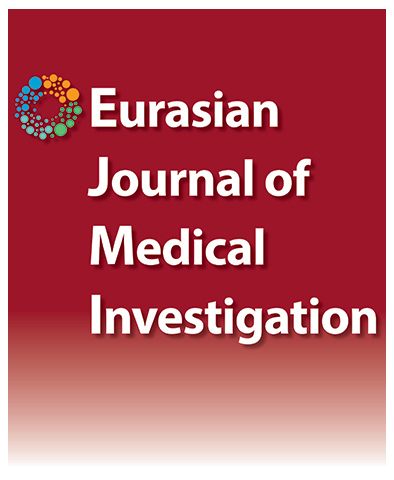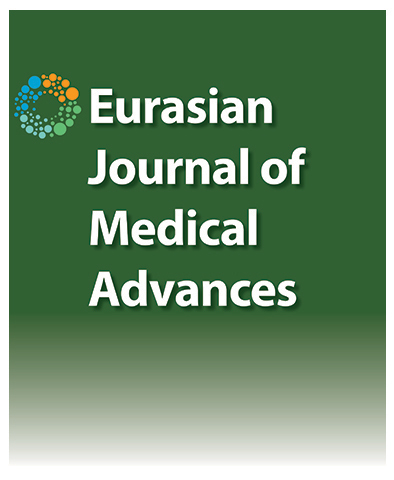Evaluation of Clinical Data of Patients with Pancreatic Cancer
Pınar Ulubasoglu1, Hasan Ustun21Department of Nephrology, Ankara City Hospital, Ankara, Türkiye2Department of Oncology, Eskişehir Acıbadem Hospital, Eskişehir, Türkiye
Objectives: The main purpose of the study is to determine the prognostic factors by retrospectively evaluating the clinical data of patients with pancreatic cancer.
Methods: The patients diagnosed with pancreatic adenocarcinoma (132) were analyzed retrospectively. Age, gender, blood group, tumour localisation, tumour stage (TNM classification), postoperative chemotherapy, postoperative radiotherapy status, progression-free survival and survival time as prognostic factors were evaluated. Women and men, tumours located in the head versus in the trunk and tail regions, received chemotherapy and/or radiotherapy versus those who didn't, patients in stage 2, patients with stage 3, stage 4, "A", "B", "O" blood groups were compared with each other and subgroup analysis was performed.
Results: In our study, 59.8% were male and 40.2% were female. Progression-free survival and survival times of patients with stage 2 cancer were found to be significantly longer then patients with stage 3 and 4 (p<0.01). Among stage 2 and 3 patients, 45 (38.6%) patients, 26 patients with stage 4 (19.6%) received chemotherapy, and 9 patients (6.81%) received chemotherapy and radiotherapy concurrently. Tumour was most common in the head side [(70.5%)]. Progression-free survival and survival of tumour localisation, receiving chemotherapy, and tumour stage was found to affect the duration of the study statistically significantly (p<0.001).
Conclusion: It was determined that chemotherapy and stage affected progression-free survival and survival times with statistical significance. Ca 19-9 and CEA values can be used in the follow-up of patients with pancreatic cancer. EUS is usefull at pancreas cancer diagnosıs and staging.
Keywords: Pancreatic cancer, Prognostic factors, Ca 19-9, CEA, EUS
Manuscript Language: English





